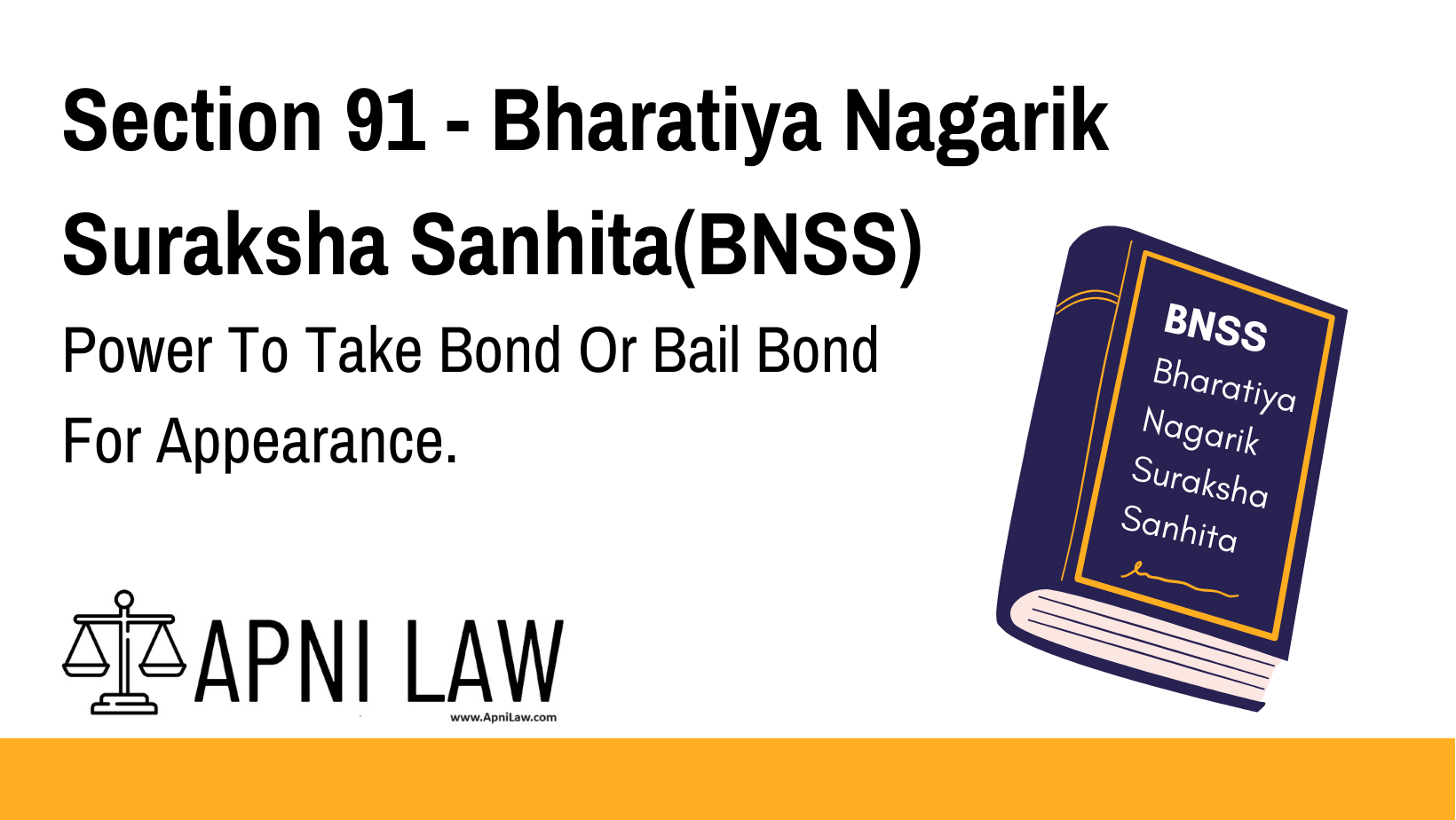Code: Section 91 BNSS
When any person for whose appearance or arrest the officer presiding in any Court is empowered to issue a summons or warrant is present in such Court, such officer may require such person to execute a bond or bail bond for his appearance in such Court, or any other Court to which the case may be transferred for trial.
Explanation of Section 91 BNSS
Section 91 of the Bharatiya Nagarik Suraksha Sanhita (BNSS), 2023, empowers a presiding officer of a Court to require an accused person, who is already present before the Court, to execute a bond or bail bond for ensuring their appearance in the same or another Court where the case is being transferred.
Key Provisions of Section 91 BNSS:
-
When Does Section 91 Apply?
- If a person is required to appear in Court under a summons or warrant.
- If the person is already present in Court.
-
Court’s Authority to Demand a Bond or Bail Bond:
- The Court can require the person to execute a bond (personal or with sureties).
- If necessary, the Court may demand a bail bond to ensure the person’s future appearance.
-
Applicability to Other Courts:
- The bond or bail bond applies to the same Court or any other Court where the case may be transferred for trial.
This provision ensures judicial efficiency by preventing unnecessary arrests while securing the accused’s presence for legal proceedings.
Illustration of Section 91 BNSS
Example 1: Execution of a Bond for Future Appearance
A person accused of cheating appears in Court in response to a summons. Instead of arresting the person, the Court requires them to execute a bond to ensure they will appear on the next hearing date.
Example 2: Bail Bond for Transferred Case
A theft case initially being tried in a Magistrate’s Court is transferred to a Sessions Court. The accused is present before the Magistrate, and the Court asks him to execute a bail bond to ensure his presence in the Sessions Court on the given date.
Common Questions and Answers on Section 91 BNSS
1. When can a Court ask a person to execute a bond under Section 91 BNSS?
- If the person is present in Court and their appearance is required for future hearings, the Court can demand a bond or bail bond.
2. Can the Court demand a bail bond even if the person is not arrested?
- Yes, if the Court deems it necessary to ensure future attendance, it may require a bail bond.
3. What happens if the person fails to appear after executing a bond?
- The Court may forfeit the bond, issue a warrant, or take other legal action to ensure compliance.
4. Does Section 91 apply only to the same Court?
- No, it also applies to any other Court to which the case may be transferred for trial.
Conclusion
Section 91 BNSS ensures that individuals required to appear in Court do so without the need for immediate arrest. It allows Courts to secure appearances through bonds or bail bonds, preventing unnecessary detention while ensuring legal compliance.
For expert legal insights, visit ApniLaw today! 🚀









